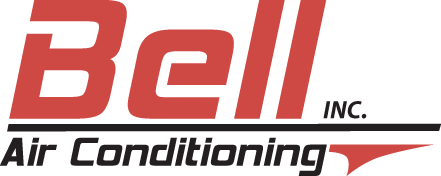
To combat increasing energy expenses and embrace sustainability, many homeowners are looking for ways to enjoy the same standards of comfort while reducing utility bills. As part of the Inflation Reduction Act, federal tax credits are available for high efficiency HVAC equipment. These credits offer significant savings, as long as the homeowners choose eligible equipment and submit the appropriate form.
If you’re worried about a long, complicated process, maybe we can help! Bell Air Conditioning Inc hopes this guide will provide all the information necessary to take full advantage of HVAC tax credits this year. Here’s how to make it happen.
How Do These Tax Credits Work?
These valuable tax credits for boosting your home’s energy efficiency are just one goal of the recent Inflation Reduction Act. Energy costs affect everyone, so helping homeowners upgrade to higher efficiency utilities can benefit everyone. The main intention of these credits is to mitigate costs associated with installation and renovation projects. The two we’ll cover are the Residential Clean Energy Credit and the Energy Efficiency Home Improvement Credit.
Don’t forget, in order to apply for the credits, you’ll have to fill out IRS Form 5695. Additionally, this form has to be submitted during the same tax year any upgrades were installed, not purchased.
Energy Efficiency Home Improvement Credit
Through 2032, the Energy Efficiency Home Improvement credit empowers homeowners by offsetting up to $3,200 every year for making your home more energy-efficient. This can be up to 30% of the total project’s cost. Keep in mind that in order to be eligible for the maximum amount, it involves making different investments. For example, you’ll receive up to $2,000 for installing a higher efficiency heat pump. This can be combined with the remaining $1,200 in credits for other eligible upgrades made within the tax year.
While heat pumps are a popular option for the tax credit, high-efficiency furnaces, air conditioners, boilers, and other HVAC systems are still eligible for this tax credit. You should confirm the make and model’s energy efficiency rating is sufficient to qualify.
Exploring the Residential Clean Energy Credit
The Residential Clean Energy Credit offers 30% savings on a wide range of residential clean energy efficiency projects. Eligibility only applies to homeowners seeking to update existing or newly constructed homes. While the Home Improvement Credit focuses on utilities and HVAC systems, this credit targets renewable energy sources like solar and wind energy.
Some key details of this tax credit include requiring the installation project to be finished between 2022 and 2032. But at the same time, homeowners can carry forward excess credit to offset future tax obligations. This is a great way to make things a little easier when investing in renewables.
Additional Qualifications for Energy Tax Credits
Because HVAC systems are one of the biggest expenses on your energy bill, these tax credits can guide you to the most energy-efficient options. But home energy efficiency can be improved in many other ways. Apart from the previously listed HVAC upgrades, {you could also choose|other eligible items include|you also have access to:
- Energy-saving heat pump water heating systems
- Modern electrical panel improvements
- New electrical wiring
- Enhancements to insulation, air sealing, and ventilation
- Energy-efficient cooking appliances like stoves, cooktops, and ovens
- Heat pump clothes dryers
- High-efficiency water boilers
Like the HVAC systems, you’ll need to verify that your preferred make and model features the required energy efficiency ratings.
Three Tips for Making the Most of 2024 HVAC Tax Credits
While all the listed upgrades can improve your home’s energy efficiency, some planning ahead will ensure more long-term benefits. Maximize your HVAC tax credits with these reminders:
- Perform an energy audit to pinpoint valuable enhancements. Trust experienced HVAC companies to pinpoint essential products and services.
- Enhance your home's envelope by addressing inefficient windows and doors.
- Explore potential rebates from utility companies for clean energy upgrades. Renewable sources like solar, wind, and geothermal contribute to community power grid sustainability.
- Don’t forget financing options from local service companies, which can help reduce costs even more.
Secure Your 2024 HVAC Credits with Help from Bell Air Conditioning Inc
Partner with local HVAC professionals like Bell Air Conditioning Inc for help with home energy audits and new installation projects. Our seasoned installers can deliver whatever you need for home energy efficiency upgrades.
